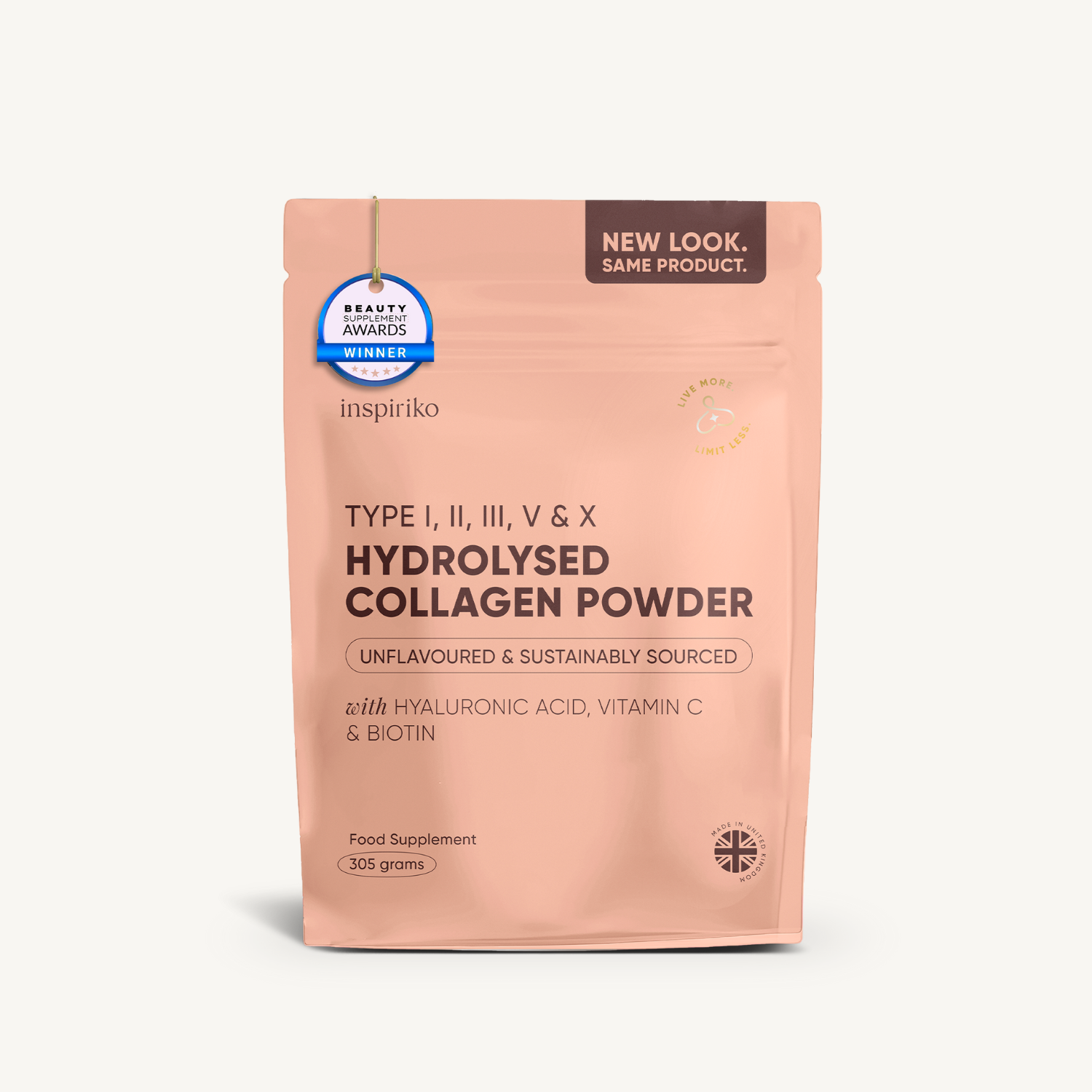As women in your 40s and beyond, you often hear about the common symptoms of menopause—hot flushes, night sweats, and mood shifts. But one critical topic that deserves just as much attention is bone health and menopause.
This life stage isn’t just about hormonal fluctuations; it’s also a turning point for your skeletal strength. The natural decline in oestrogen that accompanies menopause directly affects your bones, increasing the risk of thinning, weakness, and osteoporosis. But here’s the empowering truth: with the right approach, you can take charge of your bone health, support your body from within, and move through menopause feeling strong, confident, and resilient.
In this article, we’ll explore the connection between bone health and menopause, and walk you through science-backed ways to protect and strengthen your bones—through food, movement, lifestyle, and natural support.
What’s the Link between Bone Health and Menopause
The first thing you need to understand is how the female hormone estrogen works. In addition to having a crucial role in your reproductive capacity, estrogen plays a crucial role in maintaining bone and heart health. For example, it helps to regulate the activity of osteoblasts, which are the cells responsible for building new bone tissue (1). So, when estrogen levels start to decrease during menopause, there’s a sharp decrease in bone density and health.
This bone loss process can begin as early as the perimenopausal stage, and it can continue for several years after menopause. Maintaining bone health during menopause is crucial, but it's often overlooked, as women are often more focused on managing hot flashes, mood swings, and other common menopausal symptoms. However, neglecting bone health can have serious consequences, such as osteoporosis.
If you suffer from osteoporosis, then your bones become weak and brittle and more prone to fractures. It's a significant health concern for women, especially those over 50, and it's estimated that one in three women will experience a bone fracture related to osteoporosis in their lifetime (2).
Detecting bone loss early on is essential (4), as it can help prevent the development of osteoporosis and reduce the risk of fractures. Bone density testing is one way to detect bone loss, and it's recommended for women over the age of 65 or those who have a higher risk of developing bone problems. Now, let’s examine what you can do to prevent your bones from becoming weaker during this period.
How to Keep Bone Health During Menopause: Exercise & Diet
Maintaining healthy bones during menopause may seem challenging, but in reality, a well-rounded lifestyle—especially when it comes to diet—can work wonders in keeping osteoporosis at bay. One of the most effective ways to support bone density is by eating a balanced, nutrient-rich diet. Key nutrients such as calcium, vitamin D, and magnesium are essential for bone formation, strength, and maintenance (3).
They work synergistically: calcium builds and maintains bone structure, vitamin D enhances calcium absorption, and magnesium helps regulate both. Without enough of these nutrients, your bones can become weak and brittle—especially during the menopausal years when bone loss accelerates.

Crucial Nutrients for Bone Health
To meet these nutritional needs, focus on whole foods that naturally support bone health:
- Leafy greens like kale and spinach are loaded with calcium and magnesium, while cruciferous vegetables like broccoli bring added vitamin K and antioxidant power.
- Dairy products, including yoghurt and cheese, are excellent sources of calcium, and fortified plant-based alternatives can offer similar benefits.
- Nuts and seeds—especially almonds, chia, and sesame—are rich in both magnesium and healthy fats, which enhance nutrient absorption.
- Beans, lentils, tofu, and soy products contribute plant-based protein and calcium, vital for maintaining bone mass.
- And don’t forget your fruits: citrus fruits like oranges provide vitamin C, essential for collagen formation, while berries and avocados bring a mix of antioxidants, fibre, and bone-supportive micronutrients.
Eating a colourful, varied plate not only supports your bones but also fuels your energy and vitality through menopause and beyond.

Exercise to Avoid Osteoporosis During Menopause
In addition to eating well, regular exercise is one of the most powerful tools you have for maintaining bone density and strength during menopause. While it might sound daunting, staying active doesn’t require intense workouts or long gym sessions. In fact, consistent, moderate movement can be just as effective—especially when it includes a combination of weight-bearing, resistance, and flexibility exercises. Physical activity stimulates bone formation, improves balance and coordination, and reduces the risk of falls and fractures, which become more common as oestrogen levels decline.
- Cardio activities such as brisk walking, dancing, or gentle jogging help to strengthen the bones in your legs, hips, and lower spine by placing mild stress on them—just enough to encourage bone growth.
- Strength training, including lifting light weights or using resistance bands, plays a key role in building muscle mass and protecting bone integrity.
- If you enjoy being on wheels or in the water, cycling and swimming are excellent for cardiovascular health and joint support, though they are not weight-bearing and should be complemented with other forms of exercise.
- Practices like yoga and pilates not only enhance flexibility and posture but also improve balance and core strength, helping to prevent falls.
- Even simple bodyweight moves like squats, lunges, and push-ups can be done at home to keep your muscles and bones engaged.
The key is finding movement you enjoy—because when it feels good, you’re more likely to make it a daily habit.
How to Maintain Bone Health After Menopause
In addition to doing exercise and improving your diet, there are other crucial lifestyle changes you can introduce to avoid brittle bones. One example is avoiding smoking and excessive alcohol consumption, as these substances have been linked to an increased risk of osteoporosis and fractures because they interfere with calcium absorption (4).
Also, increasing your intake of vitamin D becomes crucial during menopause. This is a fat-soluble vitamin that plays a critical role in bone health, as it helps your body absorb calcium and ensure it is deposited in bones (5).
However, the body's ability to produce vitamin D decreases with age, and many people don't get enough vitamin D from their diet, so you’ll need to take some steps to ensure your levels of vitamin D remain healthy. 15 minutes a day of sunlight exposure can become an excellent source of vitamin D, as the skin produces the vitamin when exposed to the sun's ultraviolet B (UVB) rays (6).

Additionally, natural supplements such as omega-3, magnesium, and glucosamine & chondroitin can also promote bone health.
- Magnesium, for instance, helps regulate calcium levels and plays a critical role in bone formation (7). If you find it hard to get enough magnesium from your diet, our Smarter Magnesium can be an excellent option for women looking to support their bone health naturally.
- Omega-3 fatty acids: Found in fatty fish like salmon, tuna, and sardines, omega-3 fatty acids are known for their anti-inflammatory properties. Chronic inflammation can increase the risk of osteoporosis (8), so adding omega-3 supplements to your diet may help reduce this risk while also improving bone density and strength.
All in all, it’s clear that the decrease in estrogen levels that takes place during menopause can have devastating effects on your body, resulting in a higher risk of osteoporosis and bone fractures. However, detecting bone loss early and maintaining healthy bones is possible! Having a balanced diet, exercising regularly, and making some simple lifestyle changes can do wonders for your health. Start taking charge of your well-being today to keep your bones healthy and strong!
FAQs
1. How do hormonal therapies affect bone health during menopause?
2. Are bone health supplements safe to take alongside menopause supplements?
3. How often should I get my bone density checked during and after menopause?
Related Products
References for the blog
-
Cauley, J. A. (2015). Estrogen and bone health in men and women. Steroids, 99, 11–15.
https://doi.org/10.1016/j.steroids.2014.12.010 -
Sozen, T., Ozisik, L., & Calik Basaran, N. (2017). An overview and management of osteoporosis. European Journal of Rheumatology, 4(1), 46–56.
https://doi.org/10.5152/eurjrheum.2016.048 -
Laird, E., Ward, M., McSorley, E., Strain, J. J., & Wallace, J. (2010). Vitamin D and Bone Health; Potential Mechanisms. Nutrients, 2(7), 693–724.
https://doi.org/10.3390/nu2070693 -
Alcohol and Other Factors Affecting Osteoporosis Risk in Women. (n.d.). Brochures and Fact Sheets
-
Calcium and Vitamin D: Important at Every Age
-
Wacker, M., & Holick, M. F. (2013). Sunlight and Vitamin D. Dermato-Endocrinology, 5(1), 51–108.
https://doi.org/10.4161/derm.24494 -
Rondanelli, M., Faliva, M. A., Tartara, A., Gasparri, C., Perna, S., Infantino, V., Riva, A., Petrangolini, G., & Peroni, G. (2021). An update on magnesium and bone health. BioMetals, 34(4), 715–736.
https://doi.org/10.1007/s10534-021-00305-0 -
Ginaldi, L., Di Benedetto, M., & De Martinis, M. (2005). Immunity & Ageing, 2(1), 14.
https://doi.org/10.1186/1742-4933-2-14 -
Torrent, A., Montell, E., Vergés, J., Carceller, M., Blanco, A., Terencio, M., Ferrándiz, M., & Alcaraz, M. (2014). Effect of chondroitin sulphate and glucosamine in combination in an animal model of osteoarthritis and osteoporosis. Osteoarthritis and Cartilage, 22, S351.
https://doi.org/10.1016/j.joca.2014.02.649





